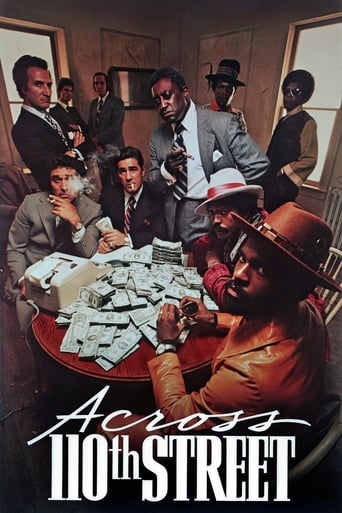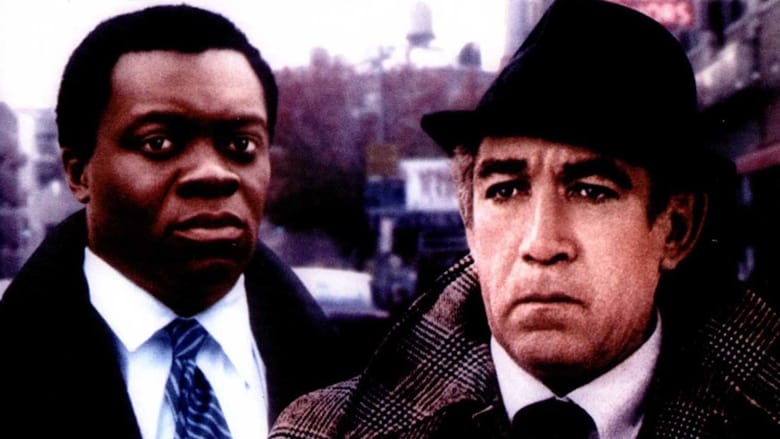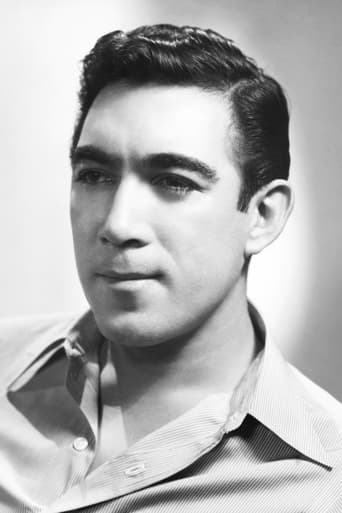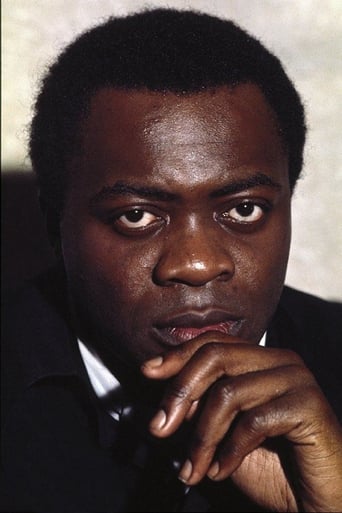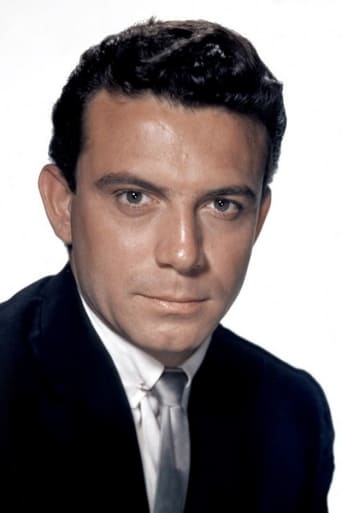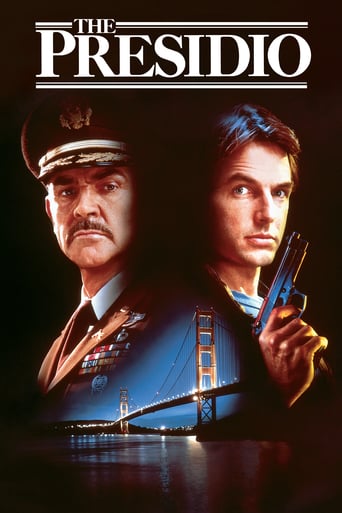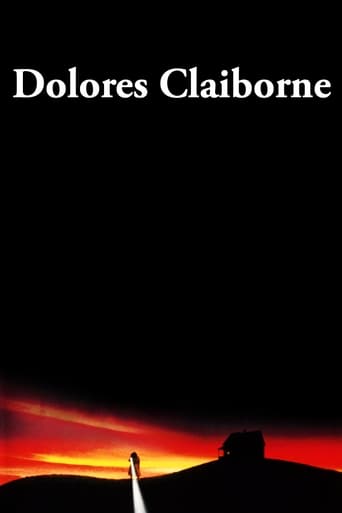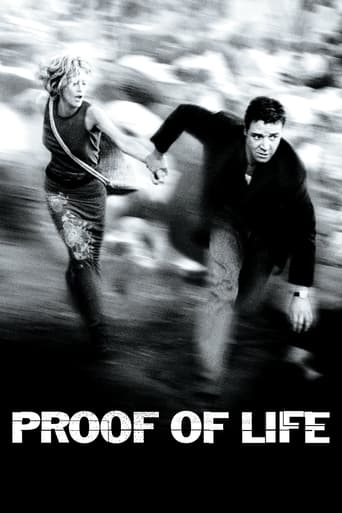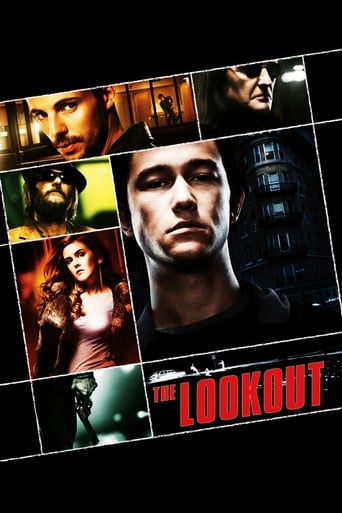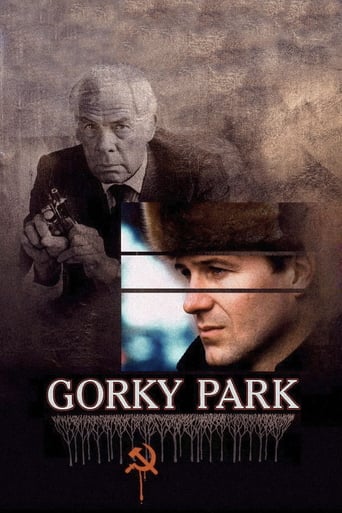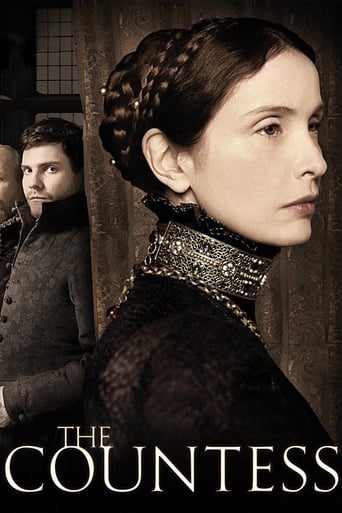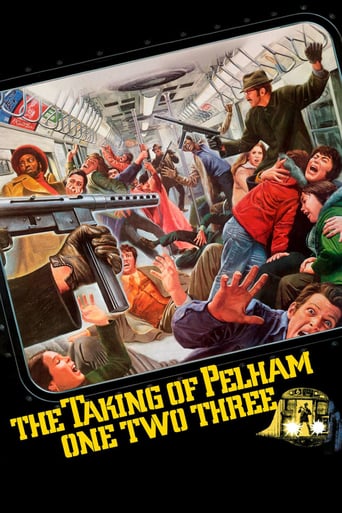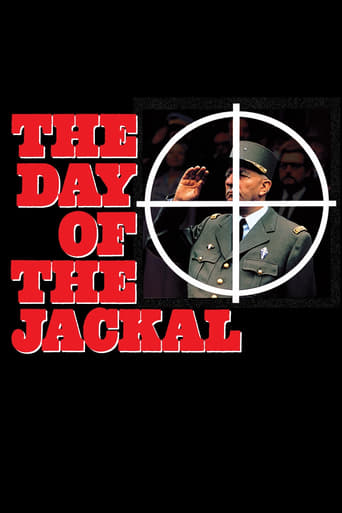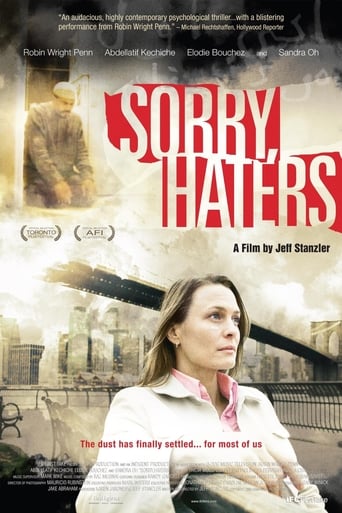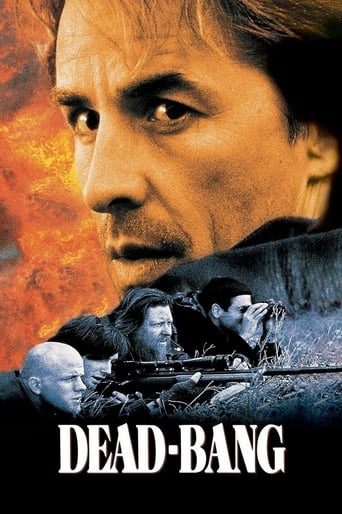Across 110th Street (1972)
In a daring robbery, some $300,000 is taken from the Italian mob. Several mafiosi are killed, as are two policemen. Lt. Pope and Capt. Mattelli are two New York City cops trying to break the case. Three small-time criminals are on the run with the money. Will the mafia catch them first, or will the police?
Watch Trailer
Cast


Similar titles
Reviews
Simply A Masterpiece
It's complicated... I really like the directing, acting and writing but, there are issues with the way it's shot that I just can't deny. As much as I love the storytelling and the fantastic performance but, there are also certain scenes that didn't need to exist.
I think this is a new genre that they're all sort of working their way through it and haven't got all the kinks worked out yet but it's a genre that works for me.
Although I seem to have had higher expectations than I thought, the movie is super entertaining.
Another film inspired by a song, the racier version I didn't so much like, when compared to the one played at the start of QT's Jackie Brown. As for the movie, I did like, where I've seen it now, four to five times. This is an interesting cop drama with an interesting though simple plot, the movie that falls on the verge of a blaxploitation one, a little saggy though in part. Quinn plays a near retiring detective, 55, worn and weary, where he's spent 60 percent of his life in his occupation. His unconventional methods of force, as he says "get's results". After a mob money rip off by three small time ex cons, where a couple of black cops get in the line of fire with some other casualties, being that of the mob boys, he's assigned with a black cop (Yaphet Kotto) who as he says, is "running the show". That he is to Quinn's dislike, where the two form a kind of partnership and mutual friendship. Now we know, stolen money is dead money, and if it's mafia involved, those three thugs lives are dwindling, their fate so foreseeable, the last of three, creating a memorable and honorable death, followed by a shock passing from Quinn's character. We too get into the three black guy's lives, and their conflict with their partners, over their fateful actions, which I liked. Anthony Franciosa (Finder Of Lost Loves, Tenebrae, really is the standout in this and if you push his buttons, the fun is watching in how he responds. Antonio Fargas, an actor I've always liked and enjoyed watching, with his ugly black mug, is fun to here, as he is in other pics, as one of the low life money stealing who meets a short demise. At the other end of this bar, it's always a privilege fine actor Quinn, and here he's top form, giving reality and believiability to this character, even though his unjust methods are kind of reprehensible. This oldie but goodie seventies movie, isn't the best of it's time, but still stacks up pretty well, due to it's story, with some heavy and impactful violence, and it's other asset, Franciosa.
Some movies when they initially premier, do not do well at the box office and then through the passing of time. they gradually attain cult status amongst a specific movie genre fan base decades later. In this case the film Across 110th Street probably did all right at the box office and then faded in to obscurity. The acting was good with stars like Yaphet Kotto, Anthony Quinn, Tony Franciosa and Paul Benjamin starring in the film and it showed great potential.The film had plenty of action scenes with the old school mentality "beat 'em up" white cop played by Anthony Quinn, and the black cop in charge of the murder investigation played by Yaphet Kotto. We also have the white Italian crime boss played by Tony Franciosa and the black robber/murderer played by Paul Benjamin.Certain movies are made for a specific era that reflects the current world around us. A world that may be harsh and cruel, where guns, bribe money and mob strength rule the inner city. Why I think Across 110th Street fell in to obscurity over the passing of time, rather than in to the cult classic regime was the film had no historical value, and we the audience just got tired of seeing white cops beating up black criminals.After viewing this film for the second time in 40 years, it ends up not having much substance and I viewed it only as an extended chase scene throughout the film, with the cops, and the black and white mobsters hunting down the three black robbers who end up murdering several black and white bad guys and two cops in the process of completing their $300,0000.00 armed robbery of an Italian mob cash counting operation.So the chase is on for recovering the stolen mobs money, vicious interrogations on (innocent) suspects are performed by both the cops and criminals, and if the cops or criminals don't get answers to who the three guys are who committed the robbery and murders people will get hurt and eventually die. It is a predictable ending that I don't think I will be watching again for a third time in the next forty years because there are a lot better crime films from the 1930's that would be on my watch list before Across 110th Street would be.
ACROSS 110th STREET is remembered more nowadays for it's title track which was used in Tarantino's Blaxploitation homage JACKIE BROWN in 1997 (though the version used in the eponymous film is markedly different).This is somewhat a disservice to the original as it is in many ways a top notch example of it's kind (but not without flaws).Three black petty thieves (two disguised as cops) stumble across a mafia/Harlem gang deal worth hundreds of thousands of dollars,though the opportunist raid goes disastrously wrong,with it's main protagonist Jim Harris (Paul Benjamin) mowing down five gangsters and one policeman,with another later dying from his injuries.As well as being pursued by the mob,the police are also hot on the raiders' trail,with a veteran Italian-American Captain (Anthony Quinn) at odds with a young, articulate,liberal,well educated black Lieutenant (Yaphet Kotto).Scarcely anyone comes off sympathetically in ACROSS 110th STREET.Harlem itself is shown in its grittiest,dirtiest,most squalid glory,all seedy apartment blocks,junk infested alleys,seedy nightclubs and bars,and dreary,ugly functional business and police buildings,with it's cynical,brutalised,racist,downtrodden,often sadistic characters on opposite sides of the law.Underrated director Barry Shear brilliantly captures such an unrelenting milieu in often cramped,claustrophobic surroundings,with hand held cameras and what seems merely natural light. It's violence is never glamorised,being savage and chaotic with horrific consequences for it's victims with zero hopes for redemption or happiness.The performances are uniformly good,with a decent script providing insight for deeper than usual characterisations in films of this sort,with Anthony Franciosa, Kotto and even Quinn (thankfully avoiding his Zorba-style tendencies here) giving honest,realistic portrayals.As the small-time crook turned mass killer,Paul Benjamin incredibly manages to make such a character as disreputable as this oddly sympathetic (Kotto is just about the only other character on show with any redeeming features), with a powerful speech which all too readily describes the plight of many uneducated,disabled blacks in areas like this in the US.And Antonio Fargas is a long way from the wisecracking,jive-talking,affable stool pigeon Huggy Bear that he would memorably portray in STARSKY AND HUTCH a few years later on TV,as one of the doomed raiders who is sadistically tortured and murdered by the vicious psychopathic hit-man Franciosa.For all it's praiseworthy qualities though,ACROSS 100th STREET is a film that is to be respected and appreciated,but not liked.It's tone is admirably realistic (along with authentic Harlem locations),but utterly humourless and often repellent because of this.The relentless tension from virtually the first shot is superbly marshaled by Shear, though this often sits uneasily with the equally uncompromising atmosphere of despair and pessimism,which reduces the entertainment value and a feeling of disappointment by the film's conclusion,which predictably ends on a downbeat note,though it thankfully never lurches into outright melodrama.Nevertheless despite it's flaws,ACROSS 110th STREET is an undervalued urban thriller of the early 70's which deserves reappraisal,and is much more than mere Blaxsploitation fodder,being more thoughtful,socially aware and better written than most subjects of said genre,in the midst of it's often harrowing and unrelenting violence.RATING:7 and a half out of 10.
"Across 110th Street" is a bold, highly original and powerful film about three African-Americans Jim Harris (played brilliantly by Paul Benjamin), Joe Logart (Ed Bernard) and Henry Jackson (Antonio Fargas) who steal $300,000 from black drug-dealers and the mob and murder three blacks, two mafia men and two cops in order to escape capture and death. After that heist is carried out, the police -- Captain Frank Mattelli (Anthony Quinn who is marvellous as always) and Lt. Pope (Yaphet Kotto, whose performance here proves that he is up there with the Hollywood greats) -- are in a race to find these three men before the mafia and the drug-dealers do.Although the plot is central to this film, Director Barry Shear and writer Luther Davis' achievement goes beyond just producing a well-acted drama. Shear has done something that film directors have rarely done which is to make the land (i.e. Harlem) a character in the film. Everyone wants to escape their depressing lives in Harlem, but none are able to leave. Joe Logard comes close, but then he is pulled right back in by the mafia and the drug lords. So in that sense Harlem not only represents a space for an entirely different world to exist (though it hardly flourishes), it also acts as a prison preventing any of its residents from escaping. Harlem also contains many traps that people could potentially fall into, much like in the projects of "Boyz in the Hood" (another great film about the unique challenges that African Americans face). In one scene, Jim Harris tells his girlfriend Gloria, "You got to get your head out of that white woman's dream," which is his way of saying that the American Dream only exists for white people. He is right, because as a black man without schooling, with no trade and a medical condition, he can only get the lowliest job without any pension. He also tells Gloria, "How would it be when we needed the bread that I told you to do it?" This is a darker statement, a veiled reference to some African-American men forcing their partners into prostitution to make money in time of need. Harlem is also a place that terrorizes people into silence. Early on in the film, Captain Mattelli makes the perceptive remark, "Nobody saw, nobody heard." He knows that the drug lords and the mafia have terrorized the people so thoroughly that they have become complicit in their crimes through their silence. The understanding in Harlem is that you should never speak to the police and you only talk to the people who can protect you and potentially reward you with money, which are the drug lords and the mob.The other important aspect of the film is the violence. Many of the violent scenes are horrific and extreme. But the violence is not there for exploitation purposes. It shows the gritty, uncompromising world of Harlem. Dr. Johnson's men and the mafia use violence to have total control over Harlem. As one mafioso boss tells the sadistic Nick D'Salvio, "We have to teach them a lesson or we lose Harlem." The police, especially Captain Mattelli, use violence because they realize that this is the only way to convince Harlem's residents to cooperate with them instead of the criminals. Finally, the world of Harlem is shaped by the racism of the police and the mob. But it is hard to say, in this violent and terror-filled world, whether the racists are worse than the black drug-dealers. Dr. Johnson is probably just as bad, because he exploits poor needy people - the prostitutes, the gamblers and the drug addicts - for his own financial gain. A brilliant and thought provoking film.

